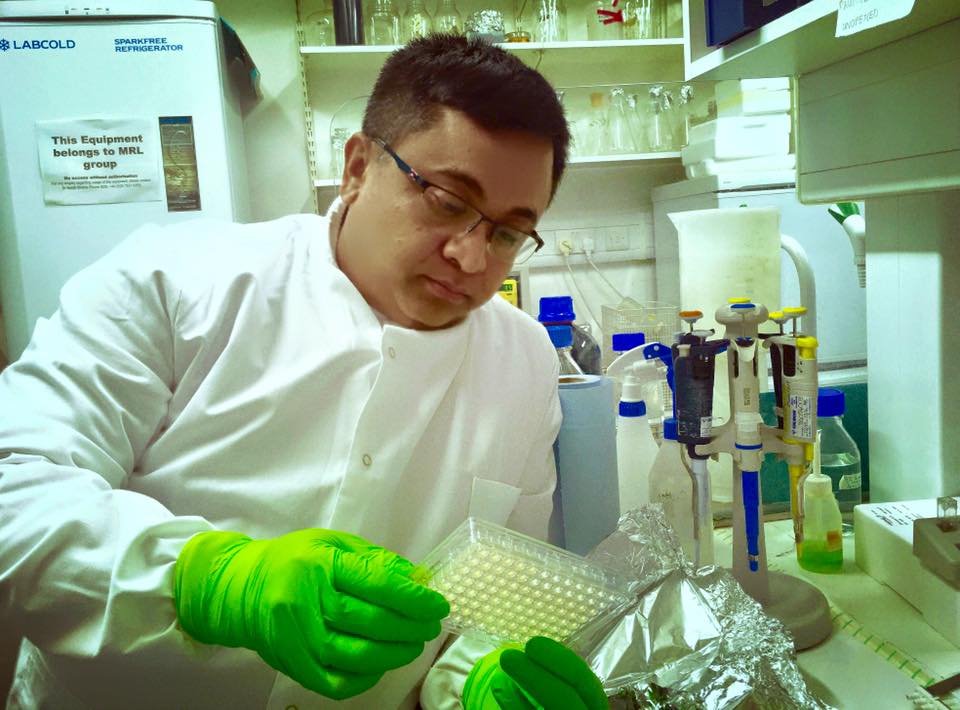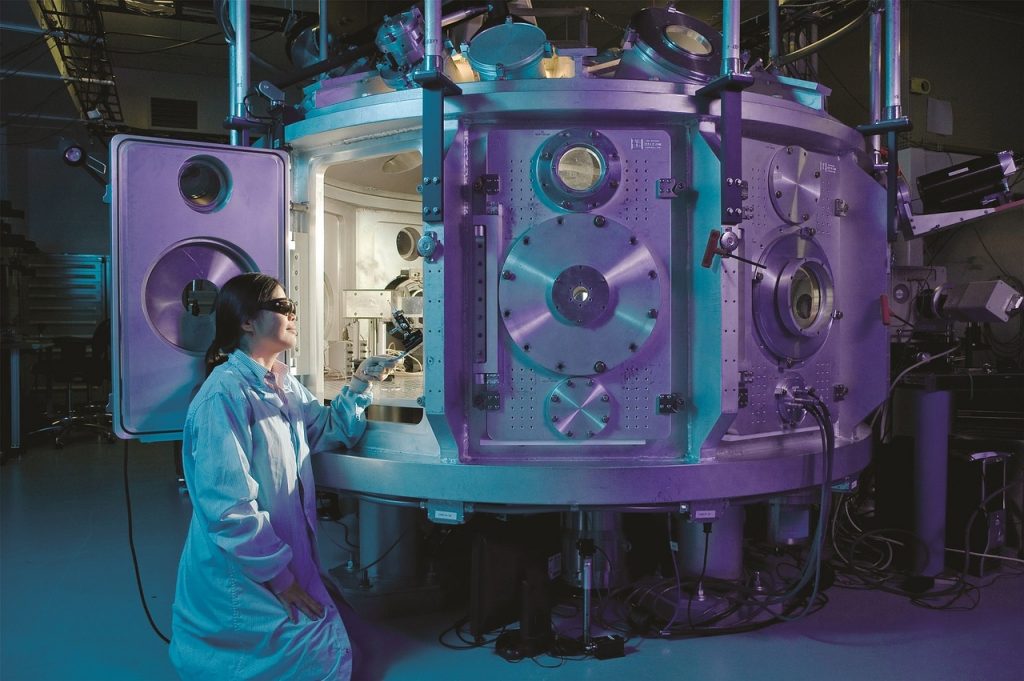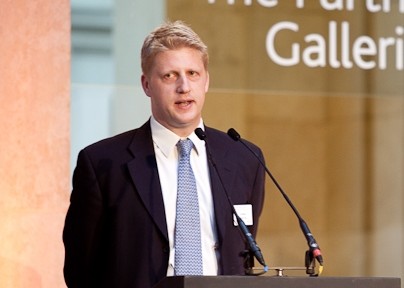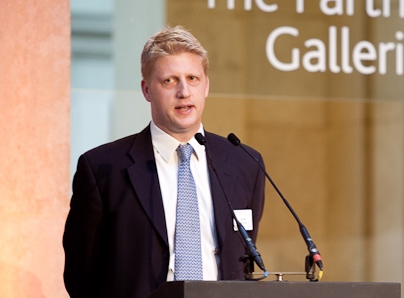Rhea Sookdeosingh, who recently completed an internship in Public Engagement at Birkbeck, discusses her time at the College, including bringing about the first Public Engagement Awards.

I joined Birkbeck in July 2017 as their first Public Engagement Intern. I was previously in a role within Oxford’s Humanities Division, managing two researcher development schemes for doctoral students and early career researchers – the AHRC-TORCH Graduate Fund and the AHRC-TORCH Public Engagement with Research Summer School. This post at Birkbeck offered an exciting opportunity to expand my knowledge of public engagement with research within a new institution. It also offered an exciting opportunity to experience the research culture of a university that prides itself on making higher education accessible. Birkbeck has a strong tradition of socially engaged research and a historical mission to engage and connect with a wide and diverse range of people outside of academia. This core ethos remains an integral part of Birkbeck’s teaching provision, as well as its approach to research, so it was an exciting prospect to think of what this fundamental commitment to engagement with society beyond the academy would mean for the kinds of public engagement activity its researchers were involved in.
It was also an exciting time to join Birkbeck as prior to my appointment the entirety of the College’s public engagement support was managed by one person: Mary-Clare Hallsworth, Birkbeck’s Public Engagement Manager. This meant that I was joining the team at a pivotal moment and had the chance to contribute to Birkbeck’s ambitions to make public engagement more visible and more valued, and to help facilitate exciting new work and connections.
The driving priority at the outset was to build up a picture of the research and research engagement landscape to ensure the awards scheme was reflective of practice on the ground. I immersed myself in Birkbeck’s rich research culture and met with research support colleagues from across the College to get a sense of the full range of engaged research practices undertaken by our researchers. Experienced public engagement professionals at other London universities were also really helpful and generous in sharing their advice about organising successful and inclusive public engagement awards. The culmination of these efforts was the creation of five award categories that reflected the broad range of our researchers’ public engagement activity: Collaboration, Communicating Research, Engaged Practice, Transforming Culture or Public Life, and a dedicated category for PhD and Early Career researchers. The call for applications was well received and I was pleased to see that applications were submitted from across all five of Birkbeck’s academic schools.
Looking back, I couldn’t be more grateful to Mary-Clare and to Birkbeck for this opportunity. It was truly inspirational to be nested within such a rich academic and institutional culture, and the months of planning and hard work were well worth it when we gathered on 19 March 2018 at Mary Ward House for the Awards Ceremony. Our researchers, senior staff and external partners came together for an elegant and rousing evening to celebrate the exciting public engagement work undertaken by the award winners. The calibre of the applications was so impressive that in addition to the winning projects in each of the five categories, a further 10 projects were Highly Commended by the judging panel.
A real highlight of my work on the awards was having the opportunity to work with colleagues from across the External Relations department at Birkbeck. The communications team were a huge help in developing an effective strategy for promoting the awards scheme and attracting interest from our researchers. Equally, working with the web development team ensured that the content I developed for our public engagement awards webpage was both informative and consistent with the College’s house style. And last but not least, the design team played a vital role in ensuring that all of our material, from the application form to the ceremony invites to the awards programme, had a consistent, and compelling, visual identity. It was an incredibly valuable learning experience to work with these talented and committed people and their input and hard work made all the difference. The awards scheme and ceremony were a great success and hopefully a strong foundation from which to build up a tradition of celebrating public engagement at Birkbeck.
Apart from the team I was immersed in, a fundamental part of my experience of organising the awards was the exposure to inspiring researchers who were not only producing high-quality research, but were equally committed to using their research to engage with non-academic partners and communities in innovative and meaningful ways. As a doctoral student myself, it was a refreshing perspective to see academic research being undertaken in an open and inclusive fashion, and as a result of this to see that research really making a difference in communities. It was also inspiring to see that I wasn’t the only one affected in this way: perhaps the best compliment about the awards came from researchers who said they enjoyed the awards ceremony because it was an unparalleled opportunity to learn about the exciting and dynamic research being done by their colleagues that they wouldn’t have otherwise encountered. Researchers are by nature curious people and it’s been amazing to see how public engagement not only provides a context in which to exercise this curiosity, but how it can also stimulate curiosity and open up new research avenues. It’s been my experience that people who do public engagement are SO enthusiastic about it! It can refresh one’s enthusiasm for their research, open up new and exciting avenues of enquiry and prompt a reconsideration of one’s role as a researcher and the role of education within our societies more broadly.
Universities are places that produce research, but they’re also places that uplift the hopes of the marginal and promise us all a better future when we exit their doors. This is a cornerstone of Birkbeck’s mission and it is as evident today as it was almost 200 years ago. This is a world-class research institution. It’s also a world-class ambition and aspiration enabler. Public engagement has the potential to bring these two mandates together, to use academic research to make a real difference within communities and within people’s lives. Seeing this up close has been a real inspiration and I’m grateful to have had a hand in supporting Birkbeck’s ambitions to build on and enrich its approach to open, collaborative and inclusive public engagement.



 The last few decades have witnessed the increasing privatisation of the public sphere – even in the realms of education and research, which, until recently, almost exclusively pertained to the public sector. Evidence from Organisation for Economic Co-operation and Development (OECD) countries shows that the slow but steady increase in private sector Research & Development (R&D) expenditure as share of GDP has been accompanied by a parallel drop in public R&D expenditure since the 1980s. A mere handful of economies buck the trend, such as that of South Korea. This has recently been referred to by Birkbeck’s Professor Daniele Archibugi and Dr Andrea Filippetti in their
The last few decades have witnessed the increasing privatisation of the public sphere – even in the realms of education and research, which, until recently, almost exclusively pertained to the public sector. Evidence from Organisation for Economic Co-operation and Development (OECD) countries shows that the slow but steady increase in private sector Research & Development (R&D) expenditure as share of GDP has been accompanied by a parallel drop in public R&D expenditure since the 1980s. A mere handful of economies buck the trend, such as that of South Korea. This has recently been referred to by Birkbeck’s Professor Daniele Archibugi and Dr Andrea Filippetti in their 

